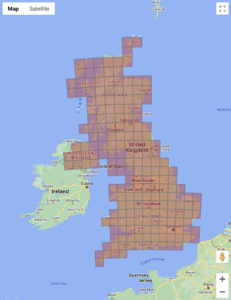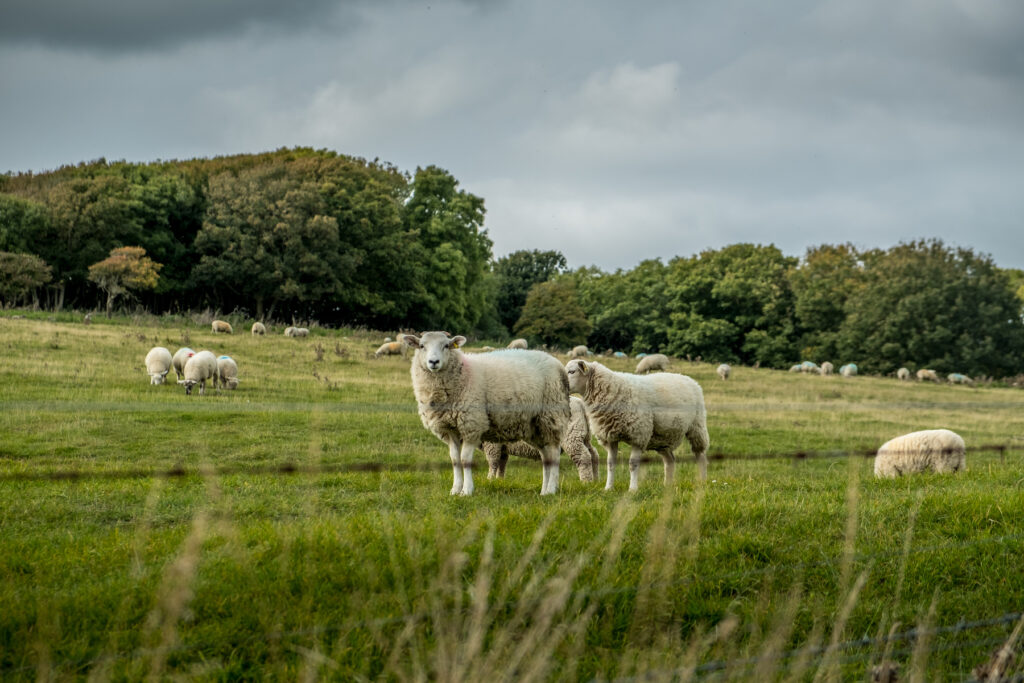Blowfly risk has risen “substantially” across the UK, forecasters warn
20th June 2023
After a late start to the blowfly season, recent hot weather has increased the risk to ‘high’ throughout the UK – and this will quickly rise further if there is any rainfall in the next few weeks.
Nadis is reminding farmers to closely monitor and treat strike in their flocks, as the UK faces high risk of blowfly due to the current weather conditions.
Blowfly strike is thought to affect over 80% of farms in the UK, costing the English sheep sector up to £2.1 million a year according to the AHDB.
With most ewes now sheared, the short fleece should offer some short-term protection. Carcasses, dirty backends, foot rot lesions and open wounds are all attractive egg laying sites.
Strike can develop very quickly, with the first maggots appearing within 12 hours of eggs being laid.
Whilst dry weather tends to make animals less susceptible to strike, now that the fly population is growing, any rainfall in the coming weeks will quickly increase strike risk, especially in lambs.
Nadis advises checking sheep at least twice a day for signs of strike – which include:
- Discomfort
- Agitation or restlessness
- Disturbed grazing
- Kicking or nibbling at affected areas
- Separation from flock
- Damp/Discoloured fleece
- Lameness and wounds
- Dull and sick animals
- Sheep found dead.
Sheep should be observed from a distance to avoid obscuring abnormal behaviour. However, it’s often necessary to handle animals and part the fleece to fully appreciate the extent of the disease.
Those at greatest risk of strike are those with conditions such as foot rot, scour, lumpy wool and existing wounds.

The latest blowfly strike forecast from Nadis/Elanco shows the high risk areas in red (1 in 100 animals might be struck).
All at-risk animals should have had a preventative treatment applied in advance of medium- and high-risk periods. A second application may be required depending on the product used.
Comprehensive worm control should also be completed to reduce scour in lambs, and footrot and wounds should be promptly treated.
Fly traps can reduce the farm’s overall fly population and Nadis stresses the importance of promptly removing fallen stock, and avoiding grazing or sheltered pasture as these areas are likely to harbour more flies than exposed pasture.
Where strike is identified, prompt treatment is necessary to ensure success and veterinary advice should be sought for severely affected or sick sheep.
The entire affected area should be clipped and an effective product applied to kill the maggots. Insect Growth Regulators (IGRs) e.g. Dicylcanil and Cyromazine do not kill maggots. It’s important to be aware when applying an IGR for prevention during high-risk periods, maggots might already be present. A vet can advise on the most effective product to use.
Correct application of a suitable product is also essential to ensure maximum protection for the flock.
To view the latest forecast, or to report cases of blowfly strike to improve surveillance, visit: https://alerts.nadis.org.uk/

